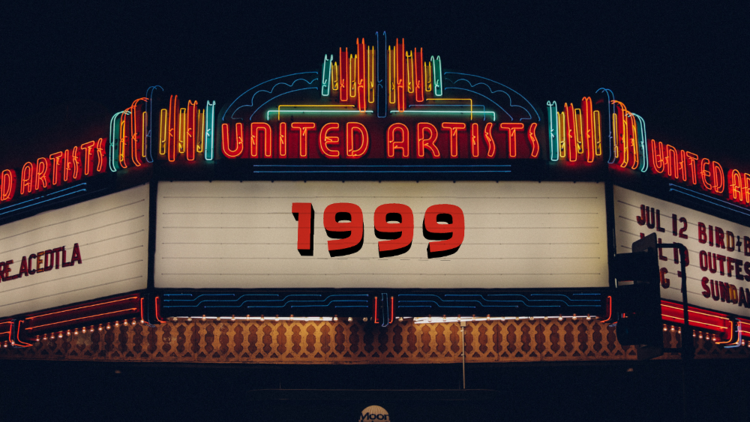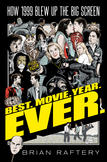Review: When movies partied like it was 1999
“We’ve got a problem. George is trying to pound David, and David is choking George.”
That was the call an executive at Warner Brothers received from the set of the 1999 film “Three Kings.” George Clooney and the director David O. Russell had finally come to blows.
If you were in high school or college around 1999, Brian Raftery’s new book, Best. Movie. Year. Ever. How 1999 Blew Up the Big Screen, will probably strike a chord. Even if you don’t fall into that thin demographic slice, Raftery weaves celebrity interviews, box office statistics and pop culture milestones into a fast-moving and generally convincing case that 1999 was indeed the Best. Movie. Year. Ever.
In the course of just over 400 pages, Raftery cites “Fight Club,” “The Sixth Sense,” “Cruel Intentions,” “Office Space,” “American Beauty,” “Election,” “The Blair Witch Project,” “Being John Malkovich,” “The Matrix,” “Boys Don’t Cry,” “The Best Man,” “Three Kings” and “Magnolia,” among others, as signal cinematic accomplishments of 1999. He also includes “Star Wars: The Phantom Menace,” but I suspect that onscreen trainwreck would be better used in a counterargument.
Quibbles aside, Best. Movie. Year. Ever. succeeds in dropping the reader into the lives of cast and crew alike on these films. Readers get a taste of what inspired writers, directors and actors to labor to move projects from scripts and storyboards to the big screen.
If you were in high school or college around 1999, Brian Raftery’s new book, Best. Movie. Year. Ever. How 1999 Blew Up the Big Screen, will probably strike a chord.
Part of Raftery’s thesis is that movie executives were courageous in the years leading up to 1999. They bet large sums of money on interesting ideas. Most of them lost their bets when many of the films disappointed at the box office. But that makes 1999 even more significant: It is a year not likely to be repeated.
Box office success, however, is not the only evidence Raftery submits: What if a movie influenced others, if it became part of the cultural conversation or if it captured the zeitgeist of a generation? “Office Space” is a great example. It was not a box office success, but anyone who has ever worked in a sea of cubicles has probably quoted (knowingly or not) several lines from the movie.
While there are times when Raftery tries to score “geek points”—describing George Lucas’s beard as “Hoth-white” or throwing readers down winding pop-culture rabbit holes—he can be forgiven because his deep geeky knowledge is also what makes this book work. Tying together themes and highlighting connections among many of the year’s great films, Best. Movie. Year. Ever. makes me wonder: Why wasn’t I able to connect all these dots back then?
This article also appeared in print, under the headline “'Like it's 1999',” in the May 13, 2019, issue.









